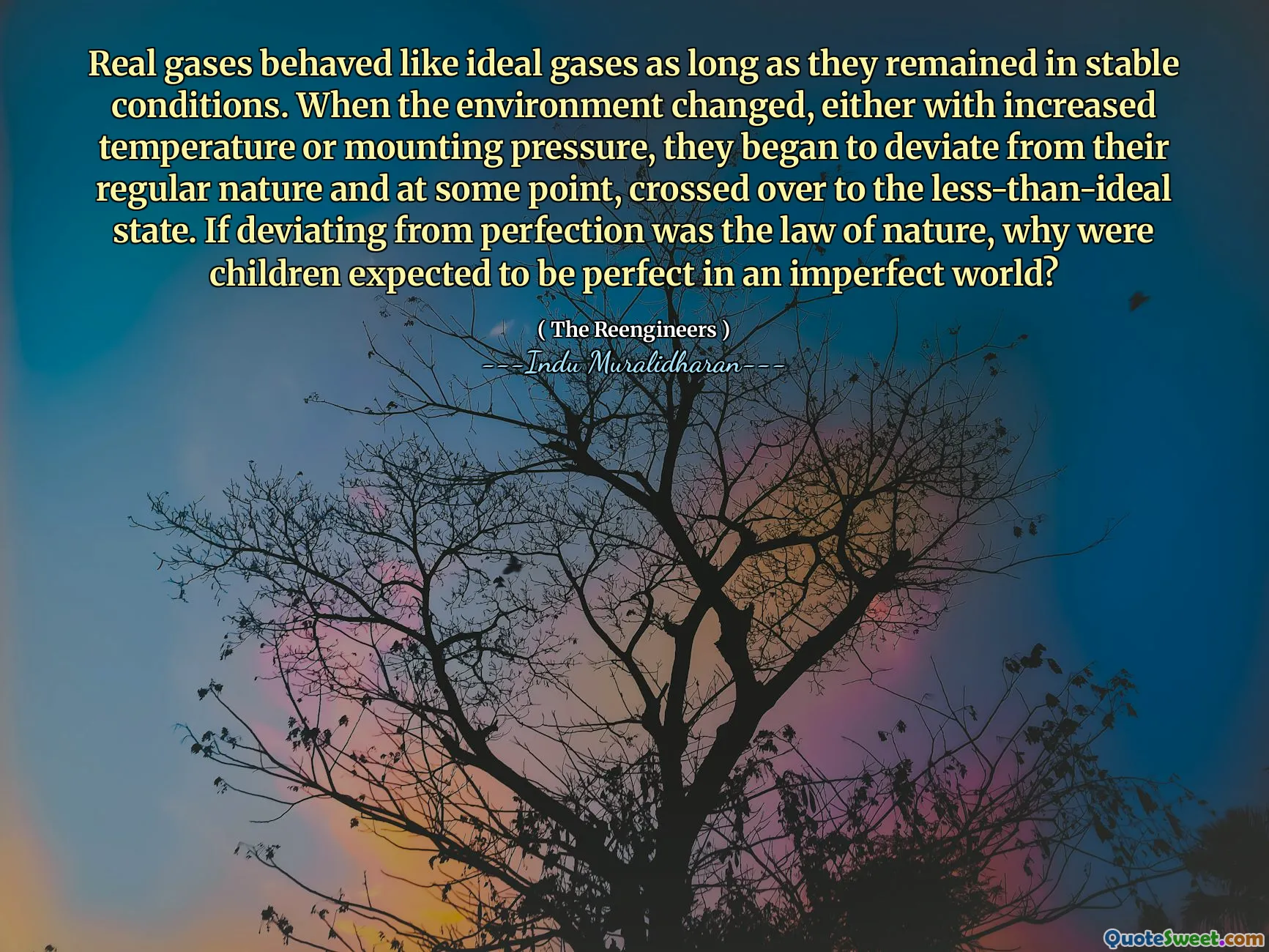
Real gases behaved like ideal gases as long as they remained in stable conditions. When the environment changed, either with increased temperature or mounting pressure, they began to deviate from their regular nature and at some point, crossed over to the less-than-ideal state. If deviating from perfection was the law of nature, why were children expected to be perfect in an imperfect world?
This thought-provoking quote draws a compelling parallel between the behavior of gases and the expectations placed upon children in our society. In scientific terms, gases tend to behave predictably under certain stable conditions, but when those conditions change, their behavior deviates from the norm. Similarly, the quote suggests that human beings, particularly children, are often expected to conform to standards of perfection despite the inherently imperfect nature of the world around them.
The analogy encourages us to reflect on societal pressures that demand flawlessness in a setting where imperfection is an inevitable part of life. Just as gases deviate from ideal behavior under stress, humans also exhibit differences, flaws, and vulnerabilities when faced with life's challenges. Expecting children to be perfect perhaps disregards their natural tendencies to grow, learn, and adapt through trials and errors, much like gases deviate from ideal behavior under changing conditions.
This metaphor underscores the importance of empathy and understanding, reminding us that imperfection is not just inevitable but also a vital aspect of growth and resilience. Instead of enforcing rigid expectations of perfection, nurturing acceptance of imperfections can foster a healthier, more compassionate society. Recognizing that we're all susceptible to deviations and errors can empower us to support one another through life's complex and unpredictable changes, much like scientists studying gases would learn from deviations and adapt their theories accordingly.





